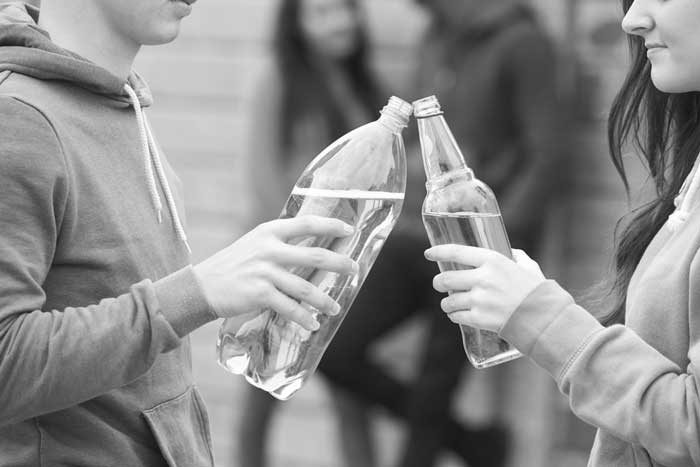
In 1984, the National Minimum Drinking Age Act was passed requiring all states to increase the minimum purchase and public possession of alcohol to the age 21. Despite the fact that all states are in compliance with the act, in certain circumstances, legal loopholes and exemptions exist in a number of states giving minors (those under the age of 21) the ability to consume alcohol. Although exemptions subsist, many states have passed liability laws to ensure parents and those hosting parties on private property are vulnerable to lawsuits, fines and possible jail time for situations where underage drinking gets out of hand. Such laws were created to prevent the following:
- Drunk-driving
- Fights
- Injuries and/or fatalities
- Sexual Assaults
- Property Damage
A number of states have enacted social host ordinances pushing additional responsibilities on the event host to “…take all reasonable steps to prevent the possession and/or consumption of alcohol…by a minor.” The notion of social host ordinances have been in the spotlight as of late due to recent arrest concerning a Stanford Professor (Bill Burnett) and his wife who threw a party for their son (at their home) where alcohol, unbeknownst to them, was snuck in by minors and served to minors. In a number of states, parents may be held liable whether or not they were aware that drinking was taking place on their property, although, those unaware in most cases are not considered liable. In cases involving underage drunk-driving, parents/hosts have been held liable both criminally and civilly.
According to Ed Lazar, approximately “65% of kids under the age of 21 who say they drink admit they get alcohol from family and friends,” In addition, a study conducted by “students against destructive decisions (SADD) claims “41% of teens say their parents allow them to attend parties where alcohol is being served…” Although the statistics are not surprising, they should make us (specifically parents) awfully aware of the unintended consequences that can result from underage drinking.
All too often, parents fail to properly and effectively educate their children on the dangers and penalties (both short and long term) involved if convicted of Driving Under the Influence (DUI). A DUI conviction can lead to a suspended license, thousands of dollars in fines and jail time in addition to your insurance premiums increasing between two or three fold. A DUI can affect your ability to become gainfully employed, may hinder your acceptance into college/graduate school and will remain on your record permanently. Unfortunately, millions of Americans drive drunk each year; many of them repeat offenders. It’s the responsibility of both the parents, underage individual, party attendees as well as the host to ensure proper measures are taken to prevent such a situation from occurring.
With such a wide range of transportation alternatives, there is no excuse for drunk-driving. Such alternatives include:
- Assigning a reliable/responsible designated driver (parent)
- Calling a friend or loved one
- Public transportation
- Taxi Cabs
- Innovative transportation startups like Uber or Lyft
If you’re planning to host a party, it’s your sole responsibility (as the home owner) to make certain there is above adequate supervision and all necessary precautions are taken to prevent anything from happening on your property as well as on the road. On the flip side, if you’re allowing your child to attend a party, take the time to educate them on the wide range of negative consequences associated with underage drinking; better safe than sorry.
——————————————————–
This article was produced by Daniel Black on behalf of Sylvan & Duke Law. Daniel regularly contributes to a number of sites and blogs and enjoys engaging with online communities.
Latest posts by Howard Iken (see all)
- The Military & Getting Rightful Benefits After Divorce - January 25, 2019
- What Chapter 7 Bankruptcy Can Do for You - August 21, 2017
- Ongoing Case Regarding Obama Amnesty Executive Order - January 17, 2016
- Big Change in Law Regarding Fight Against Opiate Trafficking - November 1, 2015